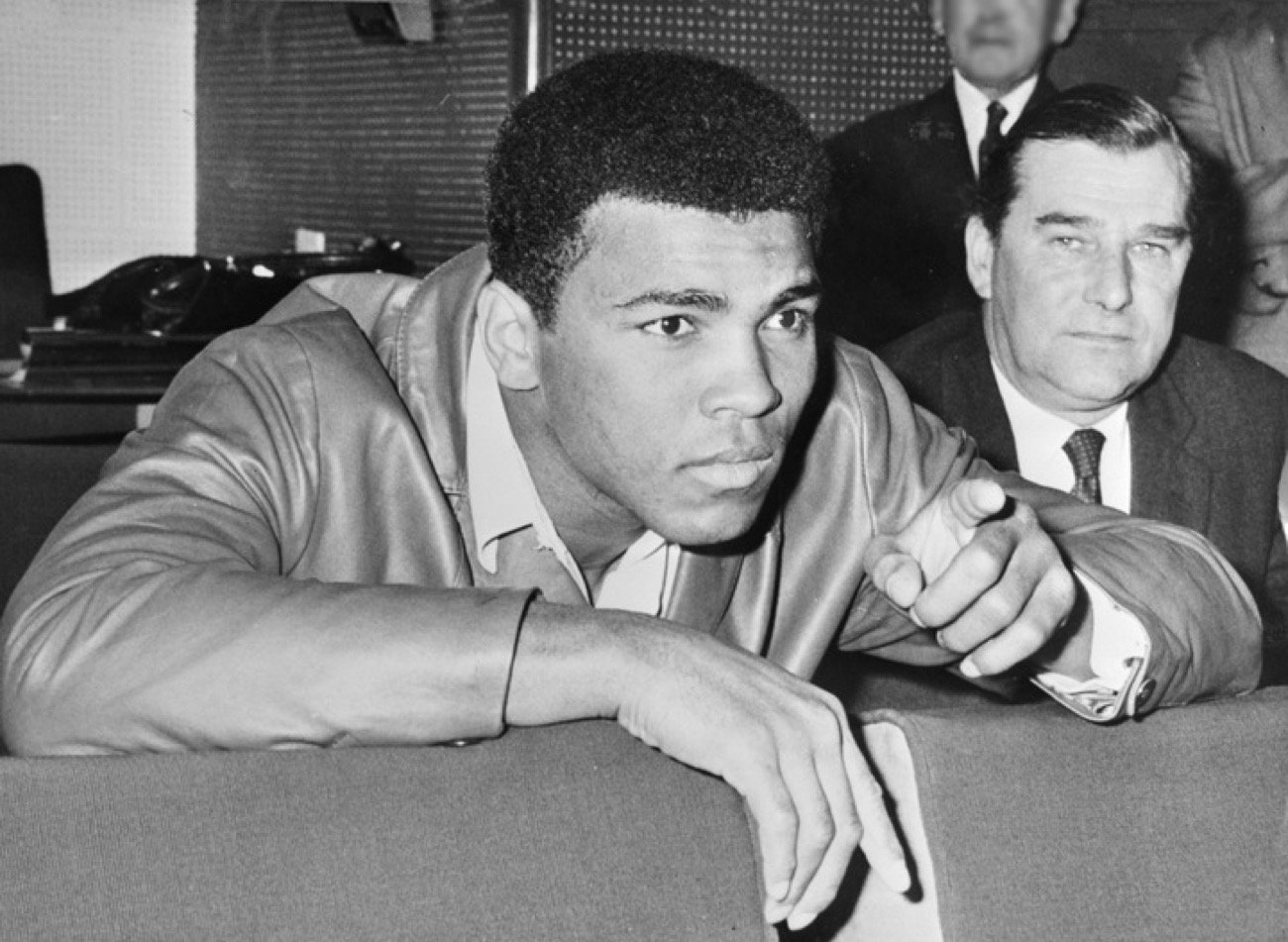Even before he was Muhammad Ali, Cassius Clay was big news. And he was a big mouth. Fond of making startlingly accurate predictions in which he would call the round ” in which the clown would go down,” the 20-something who had captured Olympic gold in 1960, this as a light-heavyweight, had generated massive fan attention.
“100 percent of the people are coming to the fight to see me, but 99 percent of them are coming to see me get beat! Ali said around this time. While fans disliked the loudmouth, who was dubbed “The Louisville Lip,” boxing experts predicted Clay’s downfall.
The old-school fight crowd was aghast at the way Clay let his hands dangle by his sides when he fought, while they were almost mortified at the way he pulled back from punches, not slipping inside an incoming blow the way it should be done.
Clay had extremely fast hands and feet, yet another concern was, was he big enough to become a force at heavyweight? He was far too skinny and too defensively lapse and guilty of other bad habits to ever be capable of beating reigning heavyweight king Sonny Liston, that much everyone knew (or thought they did).
And on the night of March 13, 1963, the Clay critics had a smug look on their faces after the 21-year-old walked out of a packed Madison Square Garden. Clay, showered with boos (some reports say the angry fans booed Clay’s win for around 20 minutes) had come desperately close to losing his unbeaten record.

Clay met the skilled and experienced Doug Jones, and while Jones was no big heavyweight himself, he was coming off a fine win over Zora Folley and he was highly placed in the world ratings.
Clay predicted a six-round win, before changing his mind and telling everyone Doug would “fall in four.” Clay never came close to putting Jones away in either round.
Instead, the young braggart had to fight the fight of his life. Hurt more than once during the exciting ten-round bout, Clay was timed by Jones and his habit of pulling back from a punch proved almost disastrous. Clay’s chin was tested, as was his stamina and his fighting heart.
Clay passed the test, yet most of the fans, driven on by their dislike for the big mouth, felt Jones deserved the win. When the decision was announced in Clay’s favor the place went nuts.
And some fans threw peanuts into the ring, along with beer cups and other debris. Clay raised his arms and drank in the dislike, the hatred. At one point, the cocksure fighter picked up one of the peanuts that had been slung in his direction and ate it.
As for Clay’s prediction of a six-round win, which was soon changed to a four-round win, Clay has the nerve to say that as six and four make ten, his prediction was in fact correct! Jones, though, knew he had given the emerging star a helluva tough time of things.
The strong belief that Clay would be all but murdered by Liston, that he would not last a round, was now even stronger. What would happen, the thinking went, if, or when, Liston hit Clay the way Jones had?
As for Sonny himself, he stated, only half-jokingly, that if he was ever matched with the kid who had just gone life and death with Jones, he himself would be “locked up for murder.” No wonder, when we look back all these years later, Liston barely trained for the 1964 defence he would make against Clay.
But the young man from Kentucky learned a lot about himself in the Jones fight, and in his next fight, against British left-hooker Henry Cooper, Clay showed he could get back up from a heavy knockdown after a mighty shot to the jaw had sent him tumbling.
None of this convinced anyone Clay had a shot in hell against Liston, but the fighter himself knew. And believed. And, quite amazingly, Clay went on to defeat Liston with far less trouble than he had encountered in his wins over Jones and Cooper. No wonder Clay’s upset win over Liston really did “shake up the world!”
